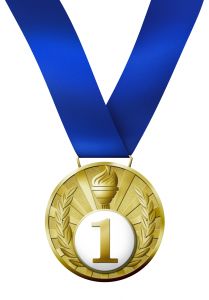Beijing, London and now Rio – Team GB just seems to get better and better with established heroes complemented by new stars of track, pool, field, court and course. As we bask in the joy of their achievements and pipping China to second place in the medal table, much media attention this week has switched from reporting success to investigating how they did it.
You will probably have seen articles about the cost per medal, the ruthless allocation of funding, brutal selection policies, and attention to detail or ‘marginal gains’. There’s a good overview article on the BBC website if you’re interested.
Recently, we have been piloting a new programme of work with a couple of our clients looking at Competitive Advantage, and I’m struck by the similarities between the approach we advocate and some of the practices underlying the success of Team GB.
Perhaps this shouldn’t be a surprise, it’s all about how to compete! And if you’re wondering how important Competitive Advantage is in business, look no further than the words of two renowned thinkers:
Jack Welch advises “If you don’t have a competitive advantage, don’t compete.” while Warren Buffett says that “The key to investing is not assessing how much an industry is going to affect society, or how much it will grow, but rather determining the competitive advantage of any given company and, above all, the durability of that advantage.”
Let’s look at some of those sporting keys to success from a business perspective:
Cost per medal and allocation of funding – it may seem harsh, but to be the best in your field isn’t likely to come cheap. Money and time is a finite resource, so let’s invest it where we have the best chance of success, and be prepared to invest enough to win.
Brutal selection policies – there’s little room for sentiment in top level sport or in business. Be prepared to replace the old with new ways to do things, recruit and develop people and seek out better ways to get ahead and stay ahead of the competition.
It takes time – the disappointing performance in Atlanta in 1996 was the catalyst for the structural changes and raised expectations that led to successes in Beijing, London and Rio. Competitive Advantage isn’t something we can create overnight, and the rewards it brings are likely to take time to materialise. Be patient, track performance indicators and stick to the strategy!
Finally, my personal observation is that most, if not all of our medal winners are likeable people who managed to blend their desire to win and enjoyment of success with generosity towards their fellow competitors, support teams, friends and family – think Nicola Adams, Laura Trott, Justin Rose and Max Whitlock to name just a few. In business we can build a defendable Competitive Advantage and still retain our personality. We can play hard, be successful and still be great people to buy from, supply and work for.
If you would like to know more about our Competitive Advantage programme, give us a call on01905 885 285 or fill in the Contact Us form, selecting Competitive Advantage as the service of interest and we will get back to you.
Chris
What does it take to win?
